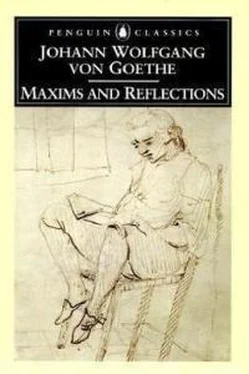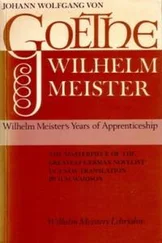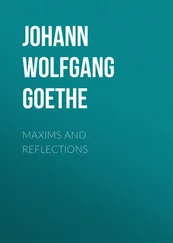197
In the theatre the pleasure of what we see and hear restrains our reflections.
198
There is no limit to the increase of experience, but theories cannot become clearer and more complete in just the same sense. The field of experience is the whole universe in all directions. Theory remains shut up within the limits of the human faculties. Hence there is no way of looking at the world, but it recurs, and the curious thing happens, that with increased experience a limited theory may again come into favour.
It is always the same world which stands open to observation, which is continually being contemplated or guessed at; and it is always the same men who live in the true or in the false; more at their ease in the latter than in the former.
199
Truth is at variance with our natures, but not so error; and for a very simple reason. Truth requires us to recognise ourselves as limited, but error flatters us with the belief that in one way or another we are subject to no bounds at all.
200
That some men think they can still do what they have been able to do, is natural enough; that others think they can do what they have never been able to do, is singular, but not rare.
201
At all times it has not been the age, but individuals alone, who have worked for knowledge. It was the age which put Socrates to death by poison, the age which burnt Huss. The ages have always remained alike.
202
That is true Symbolism, where the more particular represents the more general, not as a dream or shade, but as a vivid, instantaneous revelation of the Inscrutable.
203
Everything of an abstract or symbolic nature, as soon as it is challenged by realities, ends by consuming them and itself. So credit consumes both money and itself.
204
Mastery often passes for egoism.
205
With Protestants, as soon as good works cease and their merit is denied, sentimentality takes their place.
206
If a man knows where to get good advice, it is as though he could supply it himself.
207
The use of mottoes is to indicate something we have not attained, but strive to attain. It is right to keep them always before our eyes.
208
'If a man cannot lift a stone himself, let him leave it, even though he has some one to help him.'
209
Despotism promotes general self–government, because from top to bottom it makes the individual responsible, and so produces the highest degree of activity.
210
A man must pay dear for his errors if he wishes to get rid of them, and even then he is lucky.
211
Enthusiasm is of the greatest value, so long as we are not carried away by it.
212
School itself is the only true preparation for it.
213
Error is related to truth as sleep to waking. I have observed that on awakening from error a man turns again to truth as with new vigour.
214
Every one suffers who does not work for himself. A man works for others to have them share in his joy.
215
Men's prejudices rest upon their character for the time being and cannot be overcome, as being part and parcel of themselves. Neither evidence nor common–sense nor reason has the slightest influence upon them.
216
Characters often make a law of their failings. Men who know the world have said that when prudence is only fear in disguise, its scruples cannot be conquered. The weak often have revolutionary sentiments; they think they would be well off if they were not ruled, and fail to perceive that they can rule neither themselves nor others.
217
Common–sense is born pure in the healthy man, is self–developed, and is revealed by a resolute perception and recognition of what is necessary and useful. Practical men and women avail themselves of it with confidence. Where it is absent, both sexes find anything necessary when they desire it, and useful when it gives them pleasure.
218
All men, as they attain freedom, give play to their errors. The strong do too much, and the weak too little.
219
The conflict of the old, the existing, the continuing, with development, improvement, and reform, is always the same. Order of every kind turns at last to pedantry, and to get rid of the one, people destroy the other; and so it goes on for a while, until people perceive that order must be established anew. Classicism and Romanticism; close corporations and freedom of trade; the maintenance of large estates and the division of the land,—it is always the same conflict which ends by producing a new one. The best policy of those in power would be so to moderate this conflict as to let it right itself without the destruction of either element. But this has not been granted to men, and it seems not to be the will of God.
220
A great work limits us for the moment, because we feel it above our powers; and only in so far as we afterwards incorporate it with our culture, and make it part of our mind and heart, does it become a dear and worthy object.
221
It is no wonder that we all more or less delight in the mediocre, because it leaves us in peace: it gives us the comfortable feeling of intercourse with what is like ourselves.
222
There is no use in reproving vulgarity, for it never changes.
223
We cannot escape a contradiction in ourselves; we must try to resolve it. If the contradiction comes from others, it does not affect us: it is their affair.
224
There are many things in the world that are at once good and excellent, but they do not come into contact.
225
Which is the best government? That which teaches us to govern ourselves.
226
When men have to do with women, they get spun off like a distaff.
227
It may well be that a man is at times horribly threshed by misfortunes, public and private: but the reckless flail of Fate, when it beats the rich sheaves, crushes only the straw; and the corn feels nothing of it and dances merrily on the floor, careless whether its way is to the mill or the furrow.
228
However probable it is that a desire may be fulfilled, there is always a doubt; and so when the desire is realised, it is always surprising.
229
Absurdities presented with good taste rouse disgust and admiration.
230
Of the best society it used to be said: their speech instructs the mind, and their silence the feelings.
231
Nothing is more terrible than ignorance in action.
232
Beauty and Genius must be kept afar if one would avoid becoming their slave.
233
We treat the aged with consideration, as we treat children.
234
An old man loses one of the greatest of human privileges: he is no more judged by his peers.
235
In the matter of knowledge, it has happened to me as to one who rises early, and in the dark impatiently awaits the dawn, and then the sun; but is blinded when it appears.
236
Great primeval powers, evolved in time or in eternity, work on unceasingly: whether to weal or to woe, is a matter of chance.
237
People often say to themselves in life that they should avoid a variety of occupation, and, more particularly, be the less willing to enter upon new work the older they grow. But it is easy to talk, easy to give advice to oneself and others. To grow old is itself to enter upon a new business; all the circumstances change, and a man must either cease acting altogether, or willingly and consciously take over the new rôle.
238
Of the Absolute in the theoretical sense, I do not venture to speak; but this I maintain: that if a man recognises it in its manifestation, and always keeps his gaze fixed upon it, he will experience very great reward.
239
To live in a great idea means to treat the impossible as though it were possible. It is just the same with a strong character; and when an idea and a character meet, things arise which fill the world with wonder for thousands of years.
Читать дальше








![Иоганн Гёте - Итальянское путешествие [litres]](/books/398657/iogann-gete-italyanskoe-puteshestvie-litres-thumb.webp)



